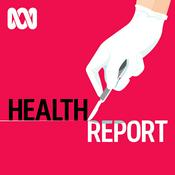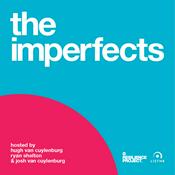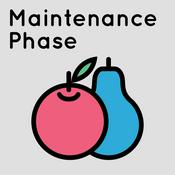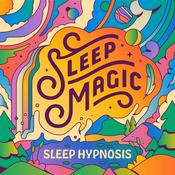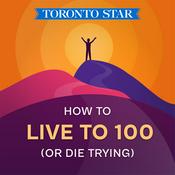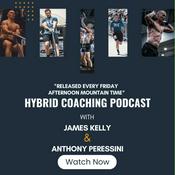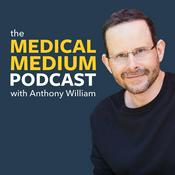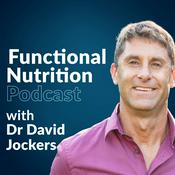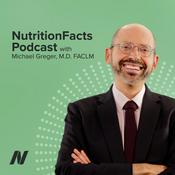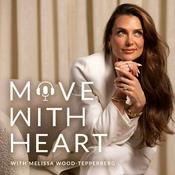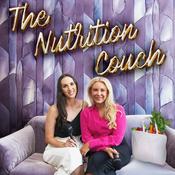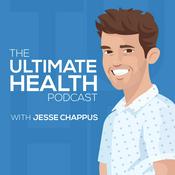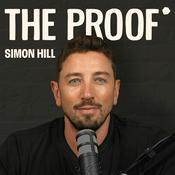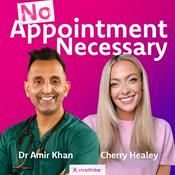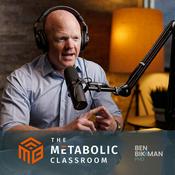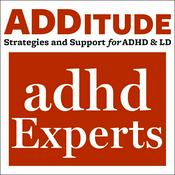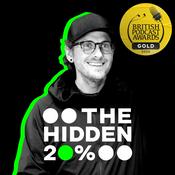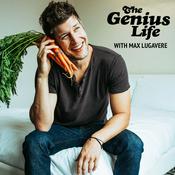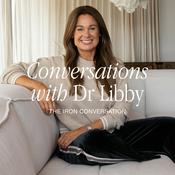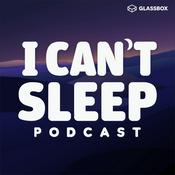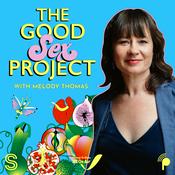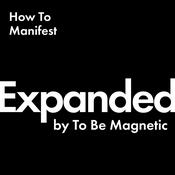251 episodes
- Why shorter fasts often stop working once insulin resistance is established — and what therapeutic fasting is actually designed to do.
Episode #245 🎙️ If you're fasting daily and still feel stuck, you may be stopping right before the real metabolic shift begins.
In this solo episode, Megan Ramos explains why shorter fasts — like 14–18 hours — often stop producing results once insulin resistance is established. She breaks down what insulin resistance really means (even without a diabetes diagnosis), why hormones and life stage change your fasting response, and when time-restricted eating is no longer enough.
This episode blends commonly asked questions with foundational strategy, helping you understand when it's time to move beyond short daily fasts and how to safely use therapeutic fasting to actually break insulin resistance.
👉 What you'll learn: • Why 14–18 hour fasts often stop working • What insulin resistance really means (with or without diabetes) • Why insulin doesn't drop into a healing range until around 24 hours • How menopause and estrogen dominance affect fasting results • The difference between time-restricted eating and therapeutic fasting • How to structure 24-hour fasts to rebuild your fasting "muscle" • Why heavy cream and fat-based fasting aids can stall progress • How to use the "rule of three" to improve eating days
⏱️ Timestamps 00:00 — Why short fasts stop working 02:00 — The 16–18 hour plateau 07:03 — The 24-hour insulin drop explained 10:06 — Menopause, estrogen dominance, and insulin resistance 11:11 — Starting with time-restricted eating properly 13:11 — Batching 24-hour fasts 16:43 — What therapeutic fasting actually means 18:01 — Electrolytes and salt: what to use and when 22:31 — Why fat-based fasting aids stall progress 23:33 — Eating day mistakes 24:59 — The "rule of three" for food variety 30:26 — Satiation, fatty protein, and dialing it in 32:06 — Closing thoughts
📝 Transcript The transcript for this episode is available on our website: https://www.thefastingmethod.com/podcasts/
💛 Community Support Join The Fasting Method Community for guidance, accountability, and coaching support: https://www.thefastingmethod.com/community/
📘 The Hunger Code Pre-Order Bonus Bundle Pre-order The Hunger Code by Dr. Jason Fung and receive access to a powerful bonus package, including The Hunger Code Masterclass and a guided 5-Day Fasting Reset, hosted by Dr. Jason Fung and The Fasting Method coaching team. ⏰ Deadline to claim the gift bundle: March 22 👉 Learn about the Masterclass + 5-Day Reset: https://www.thefastingmethod.com/the-hunger-code-masterclass-5-day-fasting-reset/ 👉 Claim your gift after pre-ordering: https://www.doctorjasonfung.com/gift-with-purchase-offer
✨ Partner Offer 🧪 Curious about Aeira? Learn more at drinkaeira.com and use the discount code podcast10 for 10% off Aeira products.
📣 Connect With Us Instagram: https://www.instagram.com/fastingmethod/ Facebook Page: https://www.facebook.com/TheFastingMethod Facebook Group: https://www.facebook.com/groups/obesitycodenetwork
⚠️ Disclaimer This podcast is for educational purposes only and is not a substitute for professional care by a doctor or other qualified medical professional. You should always speak with your physician or other healthcare professional before doing any fasting, changing your diet, taking or adjusting any medication or supplements, or adopting any treatment for a health problem. The use of any products or services purchased does not create a healthcare provider–patient relationship. Statements regarding dietary supplements have not been evaluated by the Food and Drug Administration. - Why calorie counting fails — and why hunger, not willpower, drives eating behavior.
Episode #244
🎙️ If calories alone controlled weight, calorie counting would work. But it doesn't — because hunger is the real driver.
In this episode, Dr. Terri Lance is joined by Dr. Jason Fung to unpack why the traditional "eat less, move more" model fails so many people. They explain why calorie counting ignores the biology of hunger and how hormones, food quality, and different types of hunger determine whether calories are burned or stored. This conversation reframes weight gain as a biological process — not a personal failure — and lays the groundwork for understanding eating behavior through hunger regulation rather than willpower.
👉 What you'll learn: • Why calorie counting fails for long-term weight loss • How hunger — not willpower — drives eating behavior • Why hormones determine whether calories are burned or stored • The difference between homeostatic, hedonic, and conditioned hunger • How ultra-processed foods disrupt satiety and increase hunger • Why focusing on hunger leads to more sustainable results than restricting calories
⏱️ Timestamps 00:00 — Why calorie counting became the dominant model 02:50 — Calories vs hormones: what really controls fat storage 05:00 — Why identical calories have different effects on hunger 08:03 — The alcoholism analogy: why "just eat less" fails 10:39 — Asking "why" to find the real cause of weight gain 11:45 — Homeostatic hunger and the role of hormones 13:42 — Hedonic hunger, food addiction, and ultra-processed foods 18:43 — Hunger, metabolism, and why restriction backfires 22:18 — Conditioned hunger and social environment 26:35 — Body weight set point and the "thermostat" analogy 32:29 — Food processing, digestion, and hormonal response 37:07 — Why calorie math leads to blame and shame 41:01 — Closing reflections and what comes next
📝 Transcript The transcript for this episode is available on our website: https://www.thefastingmethod.com/podcasts/
💛 Community Support Join The Fasting Method Community for guidance, accountability, and coaching support: https://www.thefastingmethod.com/community/
📘 The Hunger Code Pre-Order Bonus Bundle Pre-order The Hunger Code by Dr. Jason Fung and receive access to a powerful bonus package, including The Hunger Code Masterclass and a guided 5-Day Fasting Reset, hosted by Dr. Jason Fung and The Fasting Method coaching team. ⏰ Deadline to claim the gift bundle: March 22 👉 Learn about the Masterclass + 5-Day Reset: https://www.thefastingmethod.com/the-hunger-code-masterclass-5-day-fasting-reset/ 👉 Claim your gift after pre-ordering: https://www.doctorjasonfung.com/gift-with-purchase-offer
✨ Partner Offer 🧪 Curious about Aeira? Learn more at drinkaeira.com and use the discount code podcast10 for 10% off Aeira products.
📣 Connect With Us Instagram: https://www.instagram.com/fastingmethod/ Facebook Page: https://www.facebook.com/TheFastingMethod Facebook Group: https://www.facebook.com/groups/obesitycodenetwork
⚠️ Disclaimer This podcast is for educational purposes only and is not a substitute for professional care by a doctor or other qualified medical professional. You should always speak with your physician or other healthcare professional before doing any fasting, changing your diet, taking or adjusting any medication or supplements, or adopting any treatment for a health problem. The use of any other products or services purchased does not create a healthcare provider–patient relationship. Statements regarding dietary supplements have not been evaluated by the Food and Drug Administration. - A practical conversation about why goals don't create change — daily actions do.
Episode #243
🎙️ "Having the big, beautiful goal doesn't get us to the big, beautiful goal. Translating it into daily actions is what actually moves us forward."
In this episode, Dr. Terri Lance and Megan Ramos explore why so many people feel stuck despite having clear goals — and how shifting focus from outcomes to repeatable daily actions is what creates real, lasting progress. They discuss habit-building, consistency, and the small behaviors that support fasting success, metabolic health, and long-term transformation. This episode is a grounded reminder that progress isn't about doing more or pushing harder, but about choosing actions you can repeat over time.
👉 What you'll learn:
• Why goal-setting alone rarely leads to lasting change • The difference between motivation and consistency • How daily actions create momentum over time • Why habits matter more than intensity • How to think differently about eating days and fasting days • Why sustainability beats "cranking the dial"
🎓 Coach Terri's Program Beyond Knowing: Creating Your True Transformation Starts February 3 https://www.thefastingmethod.com/beyond-knowing-creating-your-true-transformation/
⏱️ Timestamps 00:00 — Why goals alone don't create change 05:31 — Motivation fades, consistency remains 08:53 — Translating goals into daily actions 09:11 — Structuring eating days for success 09:15 — Supporting fasting days without extremes 14:47 — Using tools without becoming dependent 20:30 — Sustainability vs intensity 27:40 — Closing reflections and next steps
📝 Transcript The transcript for this episode is available on our website: https://www.thefastingmethod.com/podcasts/
💛 Community Support Join The Fasting Method Community for guidance, accountability, and coaching support: https://www.thefastingmethod.com/community/
📘 The Hunger Code Pre-Order Bonus Bundle Pre-order The Hunger Code by Dr. Jason Fung and receive access to a powerful bonus package, including The Hunger Code Masterclass and a guided 5-Day Fasting Reset, hosted by Dr. Jason Fung and The Fasting Method coaching team. ⏰ Deadline to claim the gift bundle: March 22 👉 Learn about the Masterclass + 5-Day Reset: https://www.thefastingmethod.com/the-hunger-code-masterclass-5-day-fasting-reset/ 👉 Claim your gift after pre-ordering: https://www.doctorjasonfung.com/gift-with-purchase-offer
✨ Partner Offer 🧪 Curious about Aeira? Learn more at drinkaeira.com and use the discount code podcast10 for 10% off Aeira products.
📣 Connect With Us Instagram: https://www.instagram.com/fastingmethod/ Facebook Page: https://www.facebook.com/TheFastingMethod Facebook Group: https://www.facebook.com/groups/obesitycodenetwork
⚠️ Disclaimer This podcast is for educational purposes only and is not a substitute for professional care by a doctor or other qualified medical professional. You should always speak with your physician or other healthcare professional before doing any fasting, changing your diet, taking or adjusting any medication or supplements, or adopting any treatment for a health problem. The use of any other products or services purchased by you as a result of this podcast does not create a healthcare provider-patient relationship between you and any of the experts affiliated with this podcast. Information and statements regarding dietary supplements have not been evaluated by the Food and Drug Administration and are not intended to diagnose, treat, cure, or prevent any disease. - Real change doesn't usually look dramatic at first.
🎙️In this bonus episode, Dr. Terri Lance explores the subtle internal shifts that often signal real progress — softer self-talk, quicker recovery after setbacks, and a growing ability to stay engaged instead of giving up when things feel uncomfortable.
These changes are easy to dismiss because they don't show up immediately on the scale, but they are what make long-term results possible.
This episode is part of the Beyond Knowing series — focused on bridging the gap between knowing what to do and living it consistently.
✨ Learn more about Beyond Knowing, Dr. Terri Lance's 12-week support program, here:
https://www.thefastingmethod.com/beyond-knowing-creating-your-true-transformation/ - A practical coaching conversation for new fasters on why slowing down is the fastest way to make real progress.
Episode #242
🎙️ If fasting feels harder than it should, you may not be doing it "wrong" — you may just be rushing.
In this episode, Coach Terri Lance and Coach Heather Shuker walk through the most common beginner fasting pitfalls they see every week inside The Fasting Method. From delaying electrolytes to cranking intensity too fast, stringing OMAD days together, or expecting fasting to erase poor food choices, they explain why rushing leads to stalls, burnout, and frustration. This episode is a clear, supportive guide to building fasting skills in the right order so progress actually lasts.
👉 What you'll learn:
Why rushing into longer fasts often backfires
The electrolyte mistake almost every beginner makes
Why stringing OMAD days together can slow progress
How to use the fasting dial instead of maxing out intensity
Why fasting doesn't cancel out food quality
When telling people you're fasting can work against you
Why support and planning matter more than willpower
⏱️ Timestamps
00:00 – Slow is smooth, smooth is fast
01:12 – Why beginners rush into fasting
03:04 – Pitfall: Waiting too long to add electrolytes
07:18 – Dehydration, symptoms, and early mistakes
10:46 – Pitfall: Stringing OMAD days together
14:38 – Under-fueling, adaptation, and stalled progress
18:22 – Pitfall: Turning intensity up too fast
21:54 – Using the fasting dial instead of extremes
24:42 – Pitfall: Treating fasting like a magic eraser
27:10 – Food quality, inflammation, and results
29:38 – Final thoughts: progress comes from patience
📝 Transcript
👉 https://www.thefastingmethod.com/podcasts/
💛 Community Support
New to fasting and feeling overwhelmed?
Join The Fasting Method Community for structure, guidance, and coaching support as you build skills at the right pace:
👉 https://www.thefastingmethod.com/community/
🎓 Upcoming Coaching Program
Coach Terri — Beyond Knowing: Creating Your True Transformation
Starts February 3
👉 https://www.thefastingmethod.com/beyond-knowing-creating-your-true-transformation/
✨ Partner Offer
🧪 Curious about Aeira?
Learn more at drinkaeira.com and use the discount code podcast10 for 10% off Aeira products.
📣 Connect With Us
📸 Instagram: https://www.instagram.com/fastingmethod/
👍 Facebook Page: https://www.facebook.com/TheFastingMethod
🌐 FREE Facebook Group: https://bit.ly/TFMNetwork
⚠️ Disclaimer
This podcast is for educational purposes only and is not a substitute for professional care by a doctor or other qualified medical professional. You should always speak with your physician or other healthcare professional before doing any fasting, changing your diet, taking or adjusting any medication or supplements, or adopting any treatment for a health problem.
The use of any other products or services purchased by you as a result of this podcast does not create a healthcare provider-patient relationship between you and any of the experts affiliated with this podcast.
Information and statements regarding dietary supplements have not been evaluated by the Food and Drug Administration and are not intended to diagnose, treat, cure, or prevent any disease.
More Health & Wellness podcasts
Trending Health & Wellness podcasts
About The Fasting Method Podcast
The Fasting Method Podcast is your source for the science of intermittent fasting, offering the best advice and most compelling insight on what it takes to lose the weight for good.
Co-hosted by world-leading fasting experts, Megan Ramos and Terri Lance, Ph.D., each episode takes a deep dive on a range of hot topics, and answers listeners' questions about fasting.
Podcast websiteListen to The Fasting Method Podcast, On Purpose with Jay Shetty and many other podcasts from around the world with the radio.net app
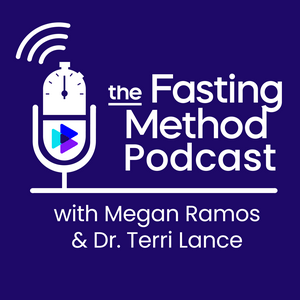
Get the free radio.net app
- Stations and podcasts to bookmark
- Stream via Wi-Fi or Bluetooth
- Supports Carplay & Android Auto
- Many other app features
Get the free radio.net app
- Stations and podcasts to bookmark
- Stream via Wi-Fi or Bluetooth
- Supports Carplay & Android Auto
- Many other app features


The Fasting Method Podcast
Scan code,
download the app,
start listening.
download the app,
start listening.



